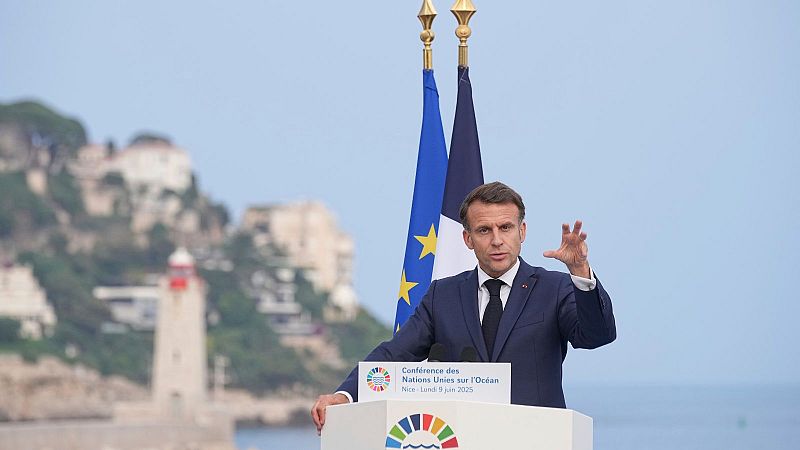
French President Emmanuel Macron kicked off the United Nations Oceans Conference (UNOC) in Nice yesterday with a speech calling on world leaders to unite for ocean protection.
But there was one notable absence from the address, according to campaigners: fossil fuels.
The global expansion of offshore and coastal oil and gas development poses profound threats to marine ecosystems, as underscored by a new report from Earth Insight, a data analytics company that tracks fossil fuel and mining activities around the world.
“This glaring omission demonstrates that the impacts of fossil fuel extraction on marine biodiversity and coastal communities continue to be overlooked,” says Tyson Miller, Executive Director at Earth Insight.
“France has an opportunity to seize this historic moment and show leadership once again, as it did in 2015 with the Paris Agreement, by calling on countries to end the expansion of offshore and coastal fossil fuel activities.”
A major focus of this third UNOC is the ratification of a High Seas Treaty, which will allow nations to establish marine protected areas in international waters for the first time.
Even at the UN climate summit last year in Baku (COP29), fossil fuels were scarcely addressed in key documents, despite their usage being the primary cause of the climate crisis.
How is fossil fuel extraction jeopardising the oceans?
Burning fossil fuels is placing a huge burden on oceans, which absorb the excess heat, leading to a slew of dangerous consequences, from killing coral reefs to fuelling more hurricanes.
The new report from Earth Insight exposes the vast physical presence of fossil fuel infrastructure in oceans and the destruction and pollution caused by its encroachment.
Much of this expansion is taking place in ‘frontier regions’ - underexplored areas with significant potential for oil, gas and Liquefied Natural Gas (LNG) development.
Looking at 11 case studies from around the world, the analysts find that oil and gas blocks cover over 2.7 million km2 in these frontier regions - an area about the size of Argentina.
Moreover, 100,000 km2 of these blocks overlap with protected areas, leaving 19 per cent of coastal and Marine Protected Areas (MPAs) at risk across the frontier regions.
Coral reefs, seagrass meadows and mangroves are some of the vital ecosystems being threatened by fossil fuel companies. Approximately 63 per cent of seagrass meadows in the frontier case studies - from Barbados to Senegal - are overlapped by oil and gas blocks, the study warns.
The researchers propose a range of solutions to tackle the environmental and social harm caused by fossil fuel extraction, starting with stopping expansion in environmentally sensitive regions and removing unassigned oil and gas blocks.
International treaties - like the Fossil Fuel Non Proliferation Treaty - should be strengthened to prohibit new coastal and offshore oil and gas expansion, they say. This is where international conferences like UNOC could be used to galvanise action.







